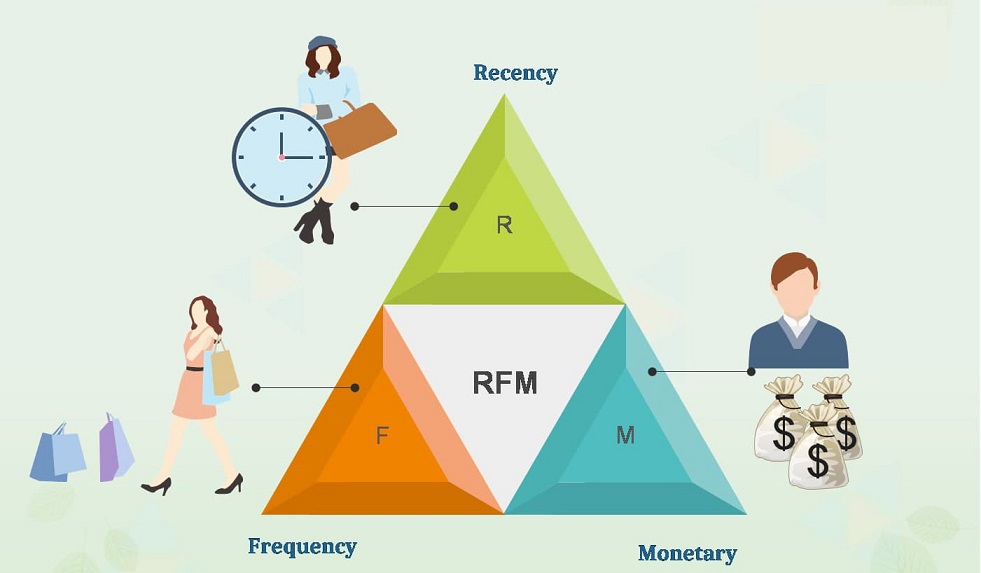In today's digital world, owning your own website has become an integral part of a successful business or personal online presence. However, creating a high-quality website is only the first step. For it to truly be useful and attract visitors, you need to actively work on its promotion. In this article, we'll cover the key steps and strategies that will allow you to promote your website independently.
First and foremost, one of the most important methods of website promotion is search engine optimization (SEO). This involves using keywords and phrases in page text, properly structuring the content, and optimizing titles and meta tags. For example, if you own a website dedicated to healthy living, it's important to include keywords related to fitness, healthy eating, and mental well-being in your text.
Another important aspect is creating high-quality and unique content that will be of interest to your target audience. For example, if your website is about travel, you can create informative articles about popular destinations, cultural aspects of countries, travel planning tips, and much more. High-quality content attracts visitors, keeps them on the site, and helps it rank higher in search results.
Optimizing a website's technical aspects is also crucial for its promotion. This includes improving page load speed, creating user-friendly navigation, adapting the site to mobile devices, and other aspects that ensure a user-friendly experience for visitors.
Being active on social media is another effective way to attract an audience to your website. Publishing content, discussing relevant topics, and participating in communities will help expand your audience and improve engagement.
Therefore, successful website promotion requires a comprehensive approach and ongoing improvement and promotion. Adhering to these strategies will help you achieve your desired results and make your website popular and successful online.
Content optimization

Content optimization plays a crucial role in attracting visitors to your website and retaining their attention. Here are some additional tips on how to make your content even more engaging and effective:
Creating unique content: Avoid copying content from other websites. Unique content that can't be found elsewhere attracts the attention of search engines and users.
Using a variety of content formats: Include not only text but also images, videos, infographics, audio files, and other formats in your content. Diversity will help make your website more interesting and accessible to different audiences.
Regular content updates: Constantly add new content to your website and update existing content. This will help maintain user interest and show search engines that your site is active and relevant.
Focus on quality, not quantity: It's better to have a few high-quality, informative articles than many superficial ones. Users value in-depth analysis and useful information.
Example: If your website is about healthy living, you can create a variety of content: articles on nutrition, exercise, mental well-being, recipes, etc. Each article should be original and contain keywords related to the topic of your website.
Content optimization is a lengthy process that requires careful planning and regular updates. However, properly executed content optimization can significantly improve your website's search engine visibility and attract a larger target audience.
Creating quality content
Creating quality content is a key element of a successful content marketing strategy. Below are some additional tips on how to create content that will be engaging and valuable to your audience:
Audience Interest Analysis: Conduct research on your target audience to understand their needs, interests, and challenges. Based on this data, create content that solves their problems or offers them useful information.
Variety of content formats: Diversifying content formats allows you to attract different audience types. For example, some people prefer reading articles, while others prefer watching videos or listening to podcasts. Use a variety of content formats to maximize your audience reach.
Originality and uniqueness: Strive to create content that stands out from the crowd and offers your readers something new and interesting. Avoid copying content from other sources and strive for an original approach to topics and ideas.
Visual appeal: Use attractive and informative images, graphics, and design to make your content more engaging and easy to read. Well-designed content typically attracts more attention and generates greater interest from your audience.
Example: If your website is about travel, in addition to articles, you can create engaging photo galleries, video tours, lists of useful tips, or even interactive maps of places to visit. This will make your content more engaging and diverse for your audience.
High-quality and unique content not only keeps visitors on your site but also promotes its distribution on social media, increasing its visibility and appeal to new users.
Optimization of technical aspects
It's also important to remember about your website's technical optimization. Make sure it loads quickly, is easy to navigate, and is mobile-friendly. Technical errors and glitches can negatively impact user experience and trust in your website.
One of the key aspects of technical optimization is page loading speed. Fast page loading ensures a positive user experience and reduces site bounce rates. For example, image compression, minification of CSS and JavaScript files, and the use of caching are some of the methods that help speed up page loading.
User-friendly navigation is another important aspect of technical optimization. Your website's visitors should be able to easily find the information they need. This is achieved by a clear and intuitive menu, a coherent site structure, and well-organized content. For example, if your site has many pages or categories, you can use a mega menu or sidebar navigation for user convenience.
Responsive design is another important aspect of technical optimization. With the growing number of users accessing websites from mobile devices, it's important that your website displays correctly and is user-friendly across a variety of devices and screen resolutions. Responsive design ensures an optimal user experience regardless of the device the user is using.
Technical website optimization not only ensures a better user experience but also helps improve search engine rankings. Websites with well-optimized technical specifications have a higher chance of ranking high in search results, which can lead to increased organic traffic and higher conversions.
Active participation in social networks

Active social media engagement plays a key role in promoting your website and attracting new audiences. Here are some additional tips on how to effectively use social media to promote your website:
Choosing the right platforms: Identify which social platforms your target audience uses and focus your efforts there. For example, if your audience is young, Instagram and TikTok may be the most effective platforms for attracting attention.
Regular content publications: Strive for regular publications to keep your audience interested and engaged. These could include links to new articles, interesting facts, tips, reviews, or videos.
Audience Interaction: Be active on social media, respond to comments, ask questions, conduct surveys, and organize contests. This helps build trust and engage your audience in dialogue.
Using hashtags and geotags: Hashtags help your content be more visible and discoverable by other users. Use hashtags related to your topic, but don't overuse them. Geotagging can also be useful, especially if your business is focused on a specific region or location.
Example: If your website is about travel, your social posts can include colorful photos of interesting places, travel planning tips, and stories about personal experiences and adventures. You can use hashtags like #travel, #vacation, #travelingaroundtheworld, and others to expand the reach of your content.
Being active on social media not only helps increase traffic to your website but also builds a community around your brand, which helps it grow and become more established online.
Networking and link exchange

Networking and link building play a vital role in promoting your website. Here are some additional tips on how to effectively use this strategy to improve your website's visibility:
Search for relevant resources: Look for websites that are relevant to your topic and have high authority in your industry. These could be blogs, forums, online magazines, and other resources that are important to your audience.
Quality, not quantity: High-quality link exchanges with authoritative and relevant sites are much more important than mass link exchanges with low-quality resources. When choosing link exchange partners, pay attention to their reputation and content quality.
Natural interaction: Make sure your link exchanges appear natural and organic. Avoid link exchange schemes or link buying, as these can have negative consequences for your site's search engine rankings.
Diversity of sources: Diversifying backlink sources helps your site appear natural to search engines. Keep in mind that links from different types of resources, such as blogs, forums, and news sites, carry more weight.
Example: If your website is dedicated to cooking, you can seek out partners among other cooking blogs, culinary communities on social media, or online food and cooking magazines. Exchanging links with such resources will help your website reach an additional audience interested in culinary information.
Overall, networking and link exchange are an important part of a website's promotion strategy and can significantly improve its search engine rankings and attract additional traffic. However, remember that quality and relevance play a key role in successful link exchange.
In conclusion, successful website promotion requires a systematic approach and ongoing improvement and promotion. Based on the strategies outlined above, it's also important to consider the following aspects:
Analytics and results tracking: Regularly monitor your website's performance using analytics tools like Google Analytics. This will help you understand which strategies are effective and which need adjustments.
Flexibility and adaptation: The internet environment is constantly changing, so it's important to be flexible and adapt to new trends and shifts in user behavior. Regularly review and adjust your strategies to reflect market conditions.
Content update: Don't forget to update your website's content regularly. This will help maintain audience interest, improve SEO, and keep your website relevant. Community Participation: Be an active participant in your niche or industry. Participate in discussions, comment on others' content, and offer your expert insight. This will help you build your authority and attract new audiences.
For example, if your site is dedicated to online learning, you might host regular webinars or online courses, as well as maintain an active blog where you discuss current topics and issues in your field.
By following the strategies above, as well as taking into account changes in the industry and audience needs, you can achieve the desired results and make your website popular and successful online.








